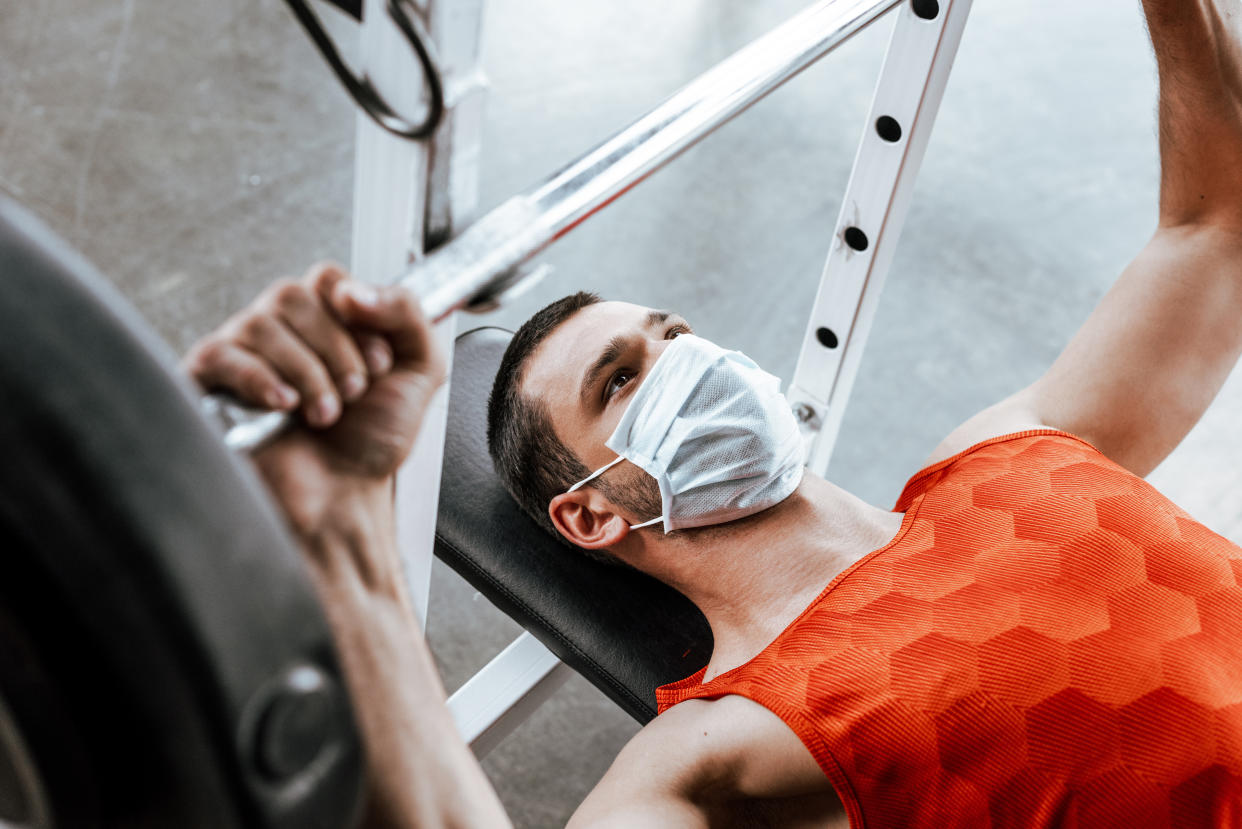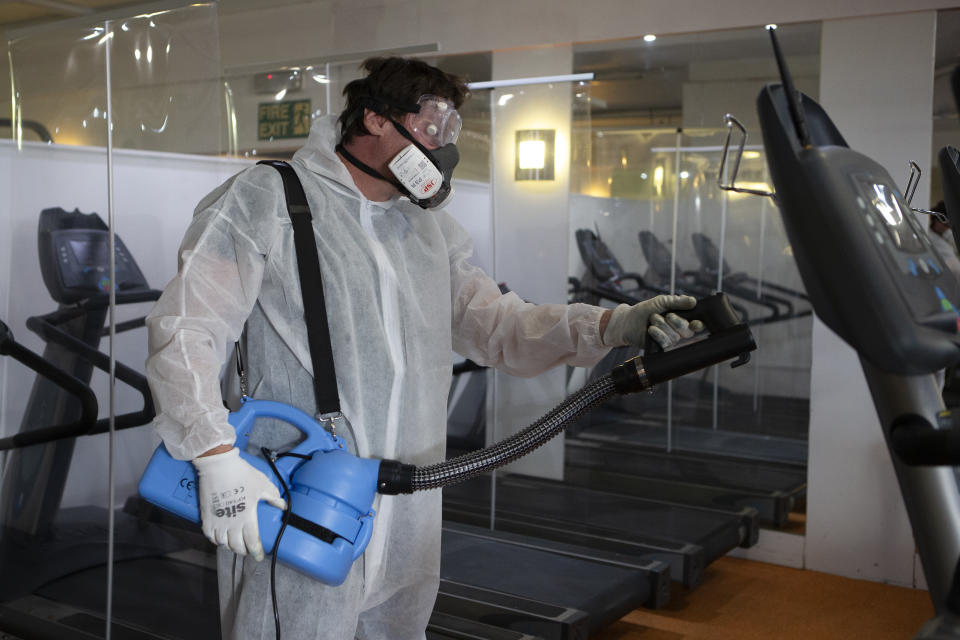How to stay coronavirus-free as gyms reopen

Fitness fans are eagerly awaiting the reopening of gyms throughout the UK on 25 July.
Boris Johnson announced the closure of leisure centres across the country on 20 March in a bid to stem the spread of the coronavirus.
Read more: How to ward off coronavirus as cinemas, galleries and museums reopen
Following months of lockdown, gym-goers are preparing to work up a sweat again as Britons adapt to a “new normal”.
Exercise sessions may feel rather different to several months ago, with changing rooms and showers largely remaining closed.
Despite precautions being in place, many are concerned sharing equipment and the heavy breathing that comes with working out may facilitate the coronavirus’ spread.

“It is great news gyms and leisure centres can reopen, and many people will be hugely excited about being able to safely visit them again,” Gerald Vernon Jackson – chair of the Local Government Association’s culture, tourism and sport board – said when it was announced gyms could reopen.
“Being active is crucial to the fight against obesity, inactivity and poor mental health, and we know lockdown has increased physical inactivity and unhealthy eating habits for some families.
Read more: Cosmetic surgery booms 'after self-conscious workers stare at themselves on Zoom'
“Many leisure providers are in serious financial jeopardy as a result of months of lockdown and the expensive cost of maintaining closed facilities, particularly those with swimming pools.”
Leisure centres reportedly suffered an £180 million ($229 million) hit between March and July, compared to the same period in 2019.
England’s chief medical officer Professor Chris Whitty has previously stressed the prime minister’s plan for lifting lockdown is by no means “risk-free”. Nevertheless, the extreme restrictions were not intended to be permanent.
How to ward off coronavirus at the gym
With reports of Britons gaining weight during lockdown and obesity a risk factor for coronavirus complications, many are keen to start working out.
To stay virus-free, Dr Simran Deo from Zava UK recommends keeping the Wimbledon-style grunting to a minimum.
“COVID-19 [the disease that can be caused by the coronavirus] is spread through water or mucus droplets from the nose and mouth,” she said.
“When we’re exercising we’re likely to breathe more heavily and frequently, increasing the chances of these droplets being created and spreading to surfaces.
Read more: Doctor urges people not to wear gloves to ward off coronavirus
“You also spread more droplets when talking loudly, shouting or grunting, so try to keep it down while lifting those weights.”
While gym equipment has to be shared, wipe it down before and after use.
“During this time, many gyms will have additional wipes and antibacterial sprays available,” said Dr Deo.
“Try to use these before and after you use each bit of equipment to help protect yourself and others.
“Throw disposable towels or wipes straight in the bin after using them, and wash your hands after handling.”
Dr Frankie Jackson Spence, an NHS medic and trainer at F45 gyms in London, also recommends keeping hand sanitiser on you during your workout.
“You don’t have to go crazy using it between each set, but before moving to the next new station,” she said.
While it’s unlikely fellow exercisers will be touching your gym bag, Dr Deo advises keeping personal items clean.
“Make sure to wash your clothes after every visit and give any reusable water bottles a thorough wash after each use to kill any infection living on surfaces,” she said.
“With changing rooms remaining closed it’s important to change and shower as soon as you get home, to avoid contaminating any surfaces.”
Social distancing will be in place, with treadmills and other equipment spaced at least one metre (3ft) apart.
While face coverings are now mandatory in shops and on public transport, masks are not recommended during exercise due to the risk breathing may become difficult.
Anyone with symptoms – fever, cough, or loss of taste or smell – must continue to isolate entirely at home for seven days, while other members of their household must do the same for two weeks.



